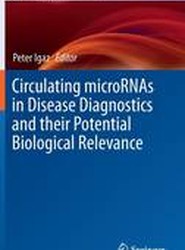(To see other currencies, click on price)
MORE ABOUT THIS BOOK
Main description:
The 39 chapters in this volume consider subjects ranging from genetics, markers, and molecular biology of alcoholism, to clinical observations and treatment. The aim is to integrate pertinent information from the fields of molecular and cell biology with view to establishing a molecular basis of alcohol use and abuse. An initial preview summarizes historical aspects of alcohol use, and subsequent chapters concern novel drugs, pharmacological aspects, gene structures, cloning, and enzymatic properties. Also contributions by "non-traditional" alcohol scientists have been included in this collection, in order to highlight possible interaction and parallels between different fields. Novel results of particular interest include up-dated summaries on receptors, enzymes, and other proteins, as well as corresponding gene structures and regulation, setting the basis for distinguishing markers and pinpointing further possible pharmacological treatments.
Contents:
Perspectives.- Alcohol in human history.- Section 1: Neuropharmacological aspects.- Reward and its control by dynorphin peptides.- Adaptation of signal transduction in brain.- Protein kinase C and adaptation to ethanol.- Molecular control of neuronal survival in the chick embryo.- Effects of alcohol on gene expression in neural cells.- The role of the NMDA receptor in ethanol withdrawal.- Molecular diversity of glutamate receptors and their physiological functions.- Multiple dopamine receptors: The D3 receptor and actions of substances of abuse.- Molecular pharmacology of serotonin receptors.- Alcohol, the reward system and dependence.- Section 2: Biological markers and special clinical features.- Clinical aspects on molecular probes, markers and metabolism.- Familial alcoholism. Family, twin adoption and high risk studies.- Association strategies in substance abuse.- PET-determination of benzodiazepine receptor binding in studies on alcoholism.- Serotonin, violent behavior and alcohol.- Neuropeptides and alcohol addiction in monkeys.- The role of adenosine in mediating cellular and molecular responses to ethanol.- Helicobacter pylori alcohol dehydrogenase.- Genetic polymorphism of cytochrome P450. Functional consequences and possible relationship to disease and alcohol toxicity.- Serotonin-altering medications and desire, consumption and effects of alcohol - treatment implications.- Section 3: Enzymatic aspects.- The alcohol dehydrogenase system.- Drug metabolism and signal transduction: Possible role of Ah receptor and arachidonic acid cascade in protection from ethanol toxicity.- Recruitment of enzymes and stress proteins as lens crystallins.- X-ray structure of PQQ-dependent methanol dehydrogenase.- NMR, alcohols, protein solvation and protein denaturation.- Crystallographic investigations of alcohol dehydrogenases.- Retinoids and the alcohol dehydrogenase gene family.- Alcohol and acetaldehyde dehydrogenase gene polymorphism and alcoholism.- Site-directed mutagenesis and enzyme properties of mammalian alcohol dehydrogenases correlated with their tissue distribution.- Control of alcohol metabolism.- Angiotensin converting enzyme inhibitors and alcohol abuse.- Section 4: Clinical aspects and pharmacological approaches.- Treatment of alcoholism.- Alcohol sensitivity and dependence.- Treatment of alcoholism as a chronic disorder.- Addiction and the potential for therapeutic drug development.- Therapeutic lessons from traditional Oriental medicine to contemporary Occidental pharmacology.- Potential gene therapy for alcoholism.- Outlook: Prospects for alcoholism treatment.
PRODUCT DETAILS
Publisher: Springer (Birkhauser Verlag AG)
Publication date: March, 2012
Pages: 407
Weight: 728g
Availability: Available
Subcategories: Biochemistry, Pharmacology, Psychotherapy
From the same series



































